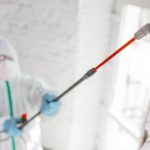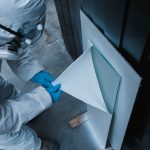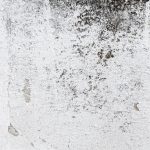
Mold is a persistent and costly problem for homeowners, especially in humid regions like Southwest Florida. Understanding whether your homeowners insurance covers mold damage is essential, as it can affect both your wallet and the safety of your home. Unfortunately, the answer to this question isn’t always straightforward. Coverage for mold damage largely depends on the source of the mold, the specific terms of your policy, and the preventative steps you’ve taken.
This article will walk you through key considerations to help you understand if your homeowners insurance covers mold damage and what steps you can take to protect your home and family.
What Factors Affect Mold Coverage?
- Cause of the MoldMost homeowners insurance policies will cover mold if it results from a “covered peril.” A peril refers to a specific risk or event that is covered under your policy, such as accidental water damage caused by a burst pipe or a roof leak after a storm. However, if the mold is due to long-term neglect or a maintenance issue like consistent humidity or poorly ventilated spaces, the insurance company is unlikely to cover the cost of mold removal.
- Sudden vs. Gradual DamageInsurance providers tend to cover mold if it’s the result of sudden and accidental water damage. For instance, if a pipe bursts or a washing machine overflows, the resulting mold may be covered. However, mold caused by gradual leaks or ongoing issues, such as condensation in a bathroom or a slow roof leak, may not be eligible for coverage. Homeowners are expected to regularly maintain their property and fix small issues before they become significant problems.
- Policy Limits and EndorsementsEven when mold damage is covered by homeowners insurance, the coverage may have limitations. Most policies impose caps on mold-related claims, which could limit the amount the insurance company is willing to pay for mold remediation. Depending on your location and the age of your home, you may want to add a mold rider or endorsement to your policy. This additional coverage can raise your limits and give you peace of mind.
How to Know if You’re Covered
- Review Your PolicyTo determine if your homeowners insurance policy covers mold damage, carefully review the language in your policy or contact your insurance provider directly. Pay special attention to sections that mention water damage, covered perils, and exclusions. Some policies explicitly exclude mold or have low limits on the amount of remediation they’ll cover.
- Prevention and MaintenanceEven if your policy provides some coverage for mold, prevention is key. Many insurance companies expect homeowners to take proactive measures to prevent mold, such as fixing leaks promptly, installing dehumidifiers in high-humidity areas like Naples or Fort Myers, and ensuring proper ventilation in bathrooms and kitchens. Failing to take these steps can give insurers a reason to deny a claim, arguing that the mold could have been avoided with proper maintenance.
What Mold Remediation Typically Covers
When homeowners insurance does cover mold remediation, the coverage may include:
- Mold removal
- Repairs to walls, floors, or ceilings
- Replacement of damaged materials like carpets or insulation
- Mold testing and inspection
However, keep in mind that homeowners may still be responsible for some costs, especially if they’ve failed to address underlying issues that led to the mold growth. In some cases, insurance may only cover part of the remediation, leaving the homeowner to pay the difference.
Common Mold Exclusions
There are several situations where mold damage is typically excluded from homeowners insurance policies:
- Flooding: Standard homeowners insurance does not cover mold caused by flooding. For example, if your home in Cape Coral is damaged by a hurricane or tropical storm that leads to flooding, mold resulting from that event won’t be covered unless you have separate flood insurance.
- Negligence: If mold develops due to your failure to maintain your home, such as ignoring a persistent leak, the insurance company will likely deny your claim. Homeowners are expected to maintain their property to prevent these kinds of issues.
- Long-Term Water Damage: Mold caused by long-term, undetected water damage, like a slow leak in a roof or plumbing system, usually isn’t covered. This is why regular home inspections and repairs are crucial for homeowners in humid areas like Fort Myers, Naples, and Bonita Springs.
How to Protect Your Home from Mold
Since mold can be costly to remediate and may not always be covered by insurance, prevention is essential, particularly in the humid climate of Southwest Florida. Here are some practical tips to protect your home from mold:
- Fix Leaks Quickly: Whether it’s a dripping faucet or a leaking roof, address any water issues as soon as they arise to prevent mold growth.
- Control Humidity: Use dehumidifiers in high-humidity areas like basements, attics, and bathrooms, especially in tropical areas like Naples and Estero.
- Ventilate Properly: Make sure your home is well-ventilated, especially in moisture-prone areas like the bathroom, kitchen, and laundry room.
- Inspect Regularly: Periodically check your home for leaks, condensation, or other potential water sources that could lead to mold growth.
Contact QCI Online for Professional Mold Remediation
If you’re dealing with mold damage in your home and unsure about your insurance coverage, QCI Online can help. Our team of experts specializes in mold testing, removal, and prevention across Southwest Florida, serving areas like Naples, Fort Myers, Cape Coral, and Bonita Springs. With over 28 years of experience, we use advanced techniques like infrared thermal imaging to detect hidden mold and offer chemical-free remediation solutions to keep your home safe.
For more information, visit our website at QCI Online or contact us at our office in Southwest Florida. We provide 24/7 emergency services to ensure that your home stays mold-free and your family stays healthy.
Mold damage can be a major headache for homeowners, especially when it comes to dealing with insurance companies. Whether or not mold is covered by your homeowners insurance policy largely depends on the cause of the mold and the specific terms of your policy. Taking preventive measures, understanding your coverage, and acting quickly when you spot mold can save you time, money, and stress in the long run.
If you’re experiencing mold issues in Naples, Fort Myers, Cape Coral, or surrounding areas, don’t hesitate to contact QCI Online for fast and effective mold remediation services. Visit our website or call us today!






